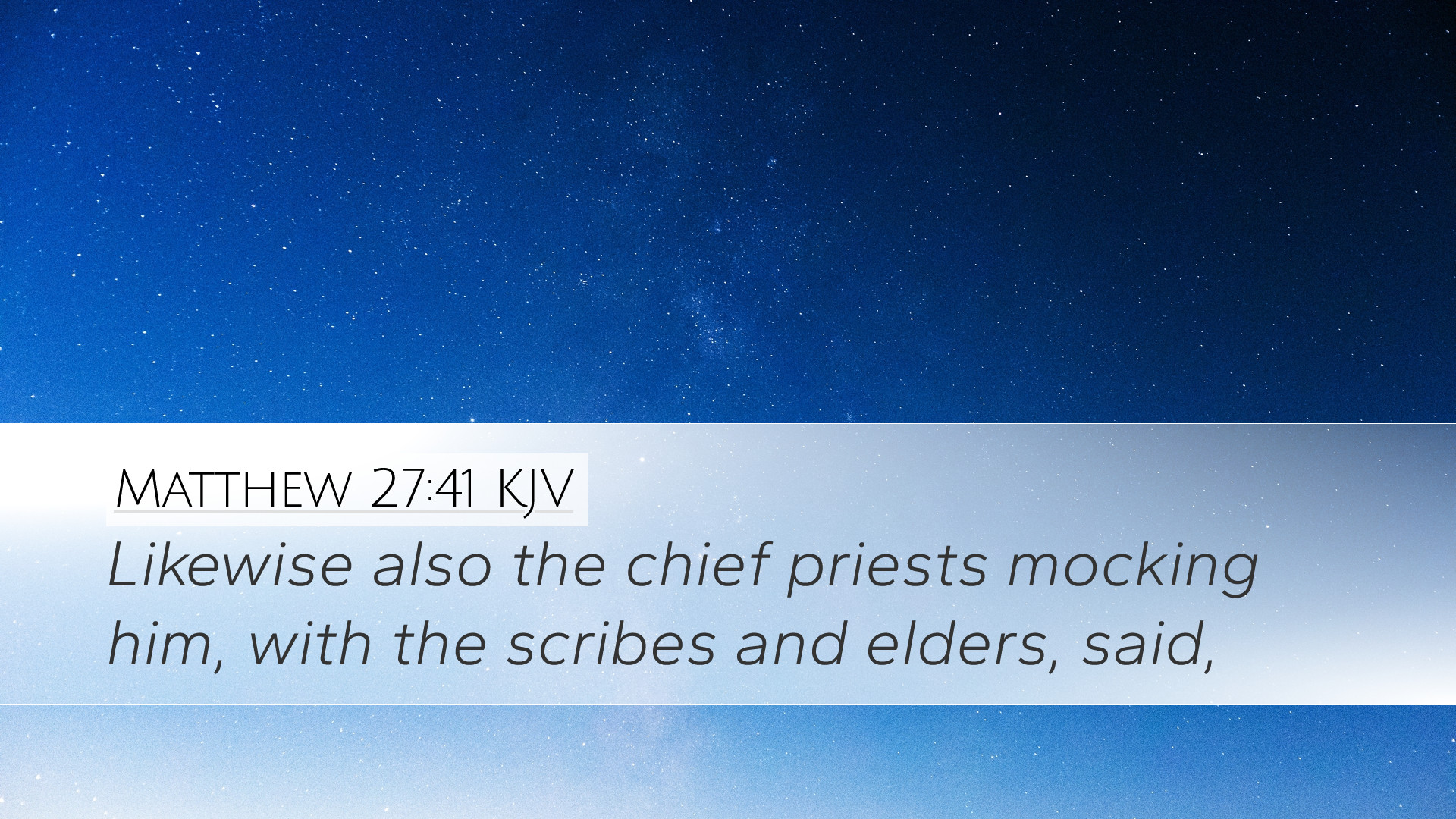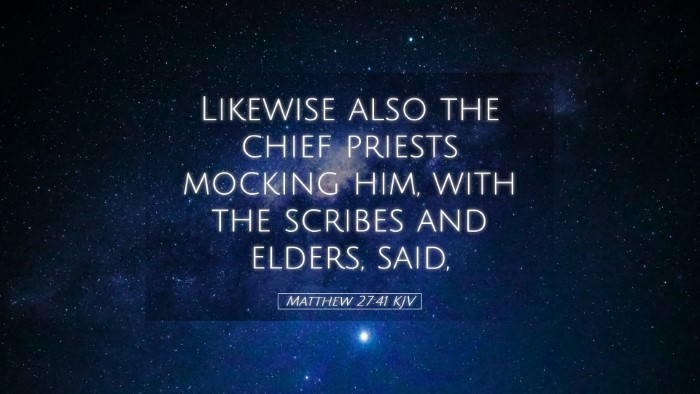Matthew 27:41 - Commentary Overview
Matthew 27:41 states: "Likewise also the chief priests mocking him, with the scribes and elders, said,". This verse speaks to the scornful attitude of the religious leaders during the Crucifixion of Jesus. Understanding this passage requires delving into the context, significance, and implications of the mockery displayed at this critical moment in Christian theology.
Contextual Understanding
The surrounding narrative in the Gospel of Matthew captures the somber events leading to the crucifixion of Christ. Jesus is presented before Pilate, having been condemned by the religious authorities of His day. In Matthew 27:41, the mocking of Jesus serves as a focal point of the derision He faced from those who were supposed to represent God's righteousness.
1. The Accusation of the Chief Priests
Matthew Henry notes that the chief priests, scribes, and elders, who held considerable power, are depicted here as being highly cynical. Their taunts reveal a stark misunderstanding of Jesus’ mission. They challenge His identity as the Messiah, indicating that if He truly has divine power, He should save Himself—which implies a profound irony as He was fulfilling a much greater purpose through His suffering and sacrifice.
2. The Nature of Mockery
Albert Barnes emphasizes the psychological tactics used by these leaders: to humiliate Jesus in front of the crowd. The use of mockery was a common Roman practice intended to assert dominance over an opponent. In this case, the goal was to undermine Jesus' authority and credibility among His followers. Their taunts—regarding His claim to be the King of Israel—reflect a deep-seated animosity toward Him.
3. Theological Implications
Adam Clarke presents a theological critique that the mockery of Christ points to the fulfillment of prophecy from Isaiah 53:3 where the Messiah is described as being "despised and rejected." The deliberate derision from those in positions of religious leadership serves to emphasize an important theme in the New Testament: that Jesus, though rejected by men, was chosen and precious in the sight of God.
Lessons for Pastors and Theologians
- The Reality of Rejection: The attitudes displayed by the chief priests and scribes remind us that Christ’s message will often be met with skepticism and hostility, even from those within the religious community.
- The Importance of Context: Understanding the cultural and historical backdrop of this passage enhances one's comprehension of its significance. The leaders were not only rejecting Jesus as a person but the radical shift He represented in their understanding of authority and God’s will.
- Humility in Suffering: Jesus' response to mockery demonstrates profound humility and unwavering commitment to His mission. Pastors and students of theology can learn the importance of maintaining faith and purpose even in the face of adversity and ridicule.
- Redemptive Suffering: The cross is depicted as a moment of apparent defeat, yet it is in this very moment that redemption is actively being worked out. This paradox is central to Christian preaching and teaching.
Application for the Contemporary Believer
For today’s believer, Matthew 27:41 serves as a reminder of the challenges that come with following Christ. Engaging with this passage helps Christians understand their own struggles against societal and relational mockery. It conveys that, like Christ, they may also face derision from the culture and sometimes even from their religious communities.
Conclusion
Matthew 27:41 illuminates the depths of human sinfulness juxtaposed with the depths of God’s grace. Through the mockery endured by Jesus, believers are encouraged to remain steadfast in their faith and to recognize that suffering for the faith can be a pathway to deeper understanding and intimacy with God. Reflecting on the cries of the chief priests not only deepens historical comprehension but also enriches spiritual application in the lives of those committed to serving God’s kingdom.


